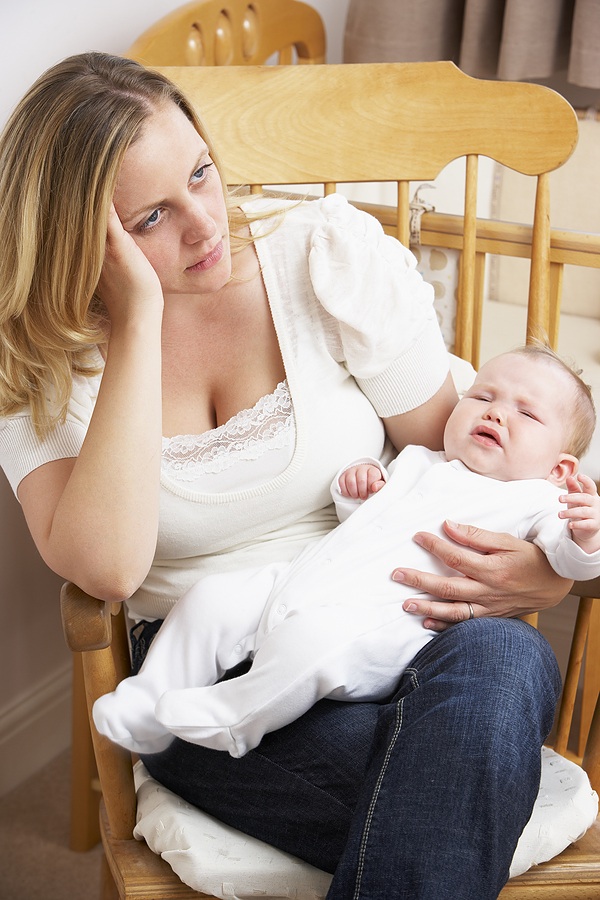 Postpartum depression is depression that occurs after delivery of a baby. It also can occur after a pregnancy loss, such as a miscarriage. It is very common. One in eight women will experience postpartum depression.
Postpartum depression is depression that occurs after delivery of a baby. It also can occur after a pregnancy loss, such as a miscarriage. It is very common. One in eight women will experience postpartum depression.
Postpartum depression is different than postpartum blues or the “baby blues”. Postpartum blues usually occurs shortly after delivery and usually resolves within 2 weeks. In women with post partum depression the symptoms may last months. Some of the symptoms of postpartum depression include: the feeling of depression, frequent crying, feeling sad most or all of the time, the inability to concentrate, the inability to enjoy things that used to be enjoyed, no interest in sex, the inability to sleep even when the baby sleeps, feeling like a failure, constant fatigue, changes in appetite ( not eating or eating excess sugars or carbohydrates), lack of laughter, being short tempered, difficulty bonding with the baby and feeling hopeless. Women that have four or more of these symptoms likely have postpartum depression.
Postpartum psychosis is an extreme type of postpartum depression which is very rare and occurs in one in one thousand women. Women with this condition may see and hear things that are not there. They may have thoughts of hurting themselves or their baby. This condition is an emergency and needs emergency attention.
Women are at increased risk of postpartum depression if they have depression or have had postpartum depression with a previous pregnancy. Women are also at risk if they have a lack of support at home, if they have a sick or colicky baby or if they have significant stress in their life. Traumatic events that occur during the pregnancy may also increase the risk of postpartum depression.
Treatment for postpartum depression includes anti-depressant medication and seeing a psychologist and or psychiatrist. There are medications that are safe for nursing mothers.
Many hospitals and physicians have screening tools for this condition. The limitation for the hospital screening is that women may not be experiencing symptoms when the screening is done (one to three days after delivery), and some of these symptoms within days after delivery are related to normal postpartum adjustment. It is so important to address these symptoms with your doctor at your postpartum visit in the office or at any time that the symptoms may arise. Many women feel embarrassed or ashamed of their feeling and are embarrassed to talk to their doctor.
Remember that the cause of postpartum depression is changing hormonal levels after a pregnancy. It is caused by something that is not in our control.




This is a very helpful information regarding postpartum depression. A lot of mothers will be able to use these facts in properly dealing with the condition. Thanks for sharing a very informative article.